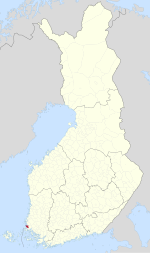
Kodisjoki is a tiny village and a former municipality of Finland. At the time of the municipality's disestablishment, Kodisjoki was located in the province of Western Finland, now it is in the Satakunta region. Kodisjoki became part of the city of Rauma in 2007.
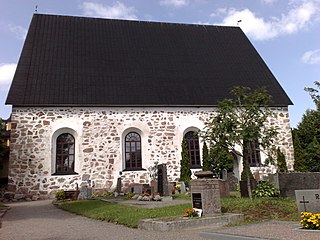
Siuntio is a municipality in the Uusimaa region of Southern Finland. Its neighboring municipalities are Ingå to the west, Kirkkonummi, to the east, Lohja to the north-west, and Vihti to the north. It is 46 kilometres (29 mi) west of Helsinki.

Uusikaupunki is a town and municipality of Finland. It is located in the Southwest Finland region, 71 kilometres (44 mi) northwest of Turku and 97 kilometres (60 mi) south of Pori. The municipality has a population of 14,887 and covers an area of 551.65 square kilometres (212.99 sq mi) of which 49.04 km2 (18.93 sq mi) is inland water. The population density is 29.58 inhabitants per square kilometre (76.6/sq mi).

Angelniemi is a former municipality of Finland. It became part of Halikko in 1967. It was located on partly on the continent by the Halikonlahti Bay and partly on Kimito Island and is still nowadays the only part of the island where Finnish is the primary language. Today the population of the area is 398, but it rises during the summer because of the summer cottages.

Uskela is a former municipality of Finland.

St. Olaf's Church, also known as Ulvila Church, is a church of the Evangelical Lutheran Church of Finland in Ulvila, Finland. The church is considered one of the best-preserved medieval fieldstone churches in Finland and is the only remaining structure from the medieval town of Ulvila. St. Olaf has been the patron saint of the church since before 1429.

The Alajärvi administrative centre is a buildings complex in the town of Alajärvi, Finland, comprising the town hall and related offices, health centre, parish hall and other buildings. It was designed by Finnish architect Alvar Aalto, who also designed the adjacent library building.

Pihlajavesi is a town and a former municipality of Finland, which in 1969 was merged into the municipality of Keuruu, located in the Central Finland region.

Pihlajavesi Old Church, also known as Pihlajavesi Wilderness Church, is a Lutheran church in the town of Pihlajavesi, in Central Finland. It is called 'Wilderness Church', because it is situated in a forest outside the main populated areas.
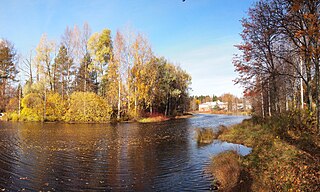
Palokka is a district of Jyväskylä and the largest area by population in the Palokka-Puuppola ward. Prior to 2009, it was a part of Jyväskylän maalaiskunta. The greater Palokka area has a population of ~14000. Palokka is approximately 5 km to the north of central Jyväskylä.
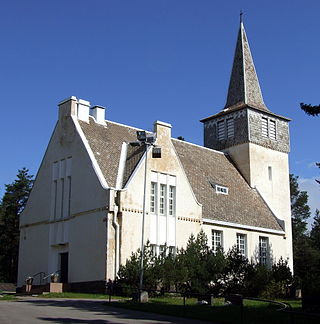
Pattijoki is a settlement and former municipality in Finland. It was a part of the Oulu Province, but now located in the region of Northern Ostrobothnia. It was consolidated with the town of Raahe in 2003.
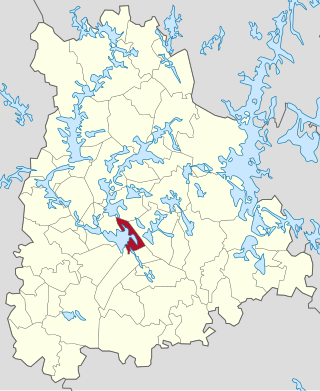
Tyrväntö is a former municipality of Finland in the Häme Province, now in Tavastia Proper. It was consolidated with Hattula in 1971. The northern part of the former municipality was transferred to Valkeakoski in 1978.
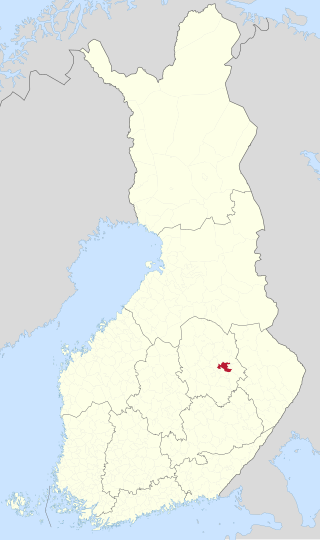
Muuruvesi is a village and a former municipality of Finland at the time of its existence in the Kuopio Province, now in Northern Savonia. Together with Säyneinen, it was consolidated with Juankoski in 1971, since 2017 part of Kuopio.

Anttola is a village and a former municipality of Finland located in the modern region of Southern Savonia. Together with Mikkelin maalaiskunta, it was consolidated with the town of Mikkeli in 2001.
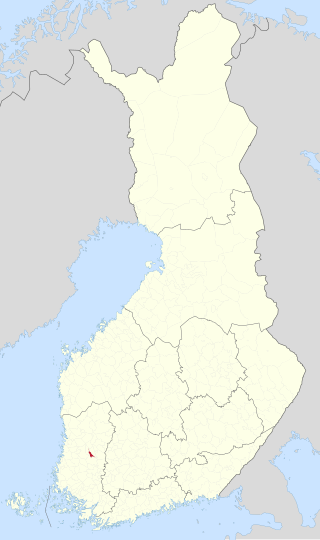
Keikyä is a former municipality of Finland in the former Turku and Pori Province, now in Pirkanmaa. Together with Kiikka, it formed the Äetsä municipality in 1981, which formed the Sastamala municipality with Vammala and Mouhijärvi in 2009.
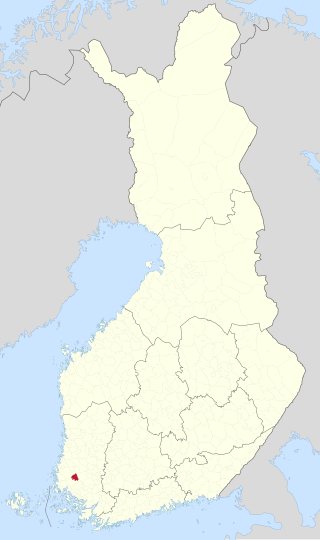
Karjala is a former municipality of Finland in the former Turku and Pori Province, now in Finland Proper. It was consolidated with Mynämäki in 1977.
Helsinki is a small village in Taivassalo, Finland.

Haapasaari is an island and a former municipality of Finland in the former Kymi Province, now in the Kymenlaakso region. It was consolidated with the town of Kotka in 1974.
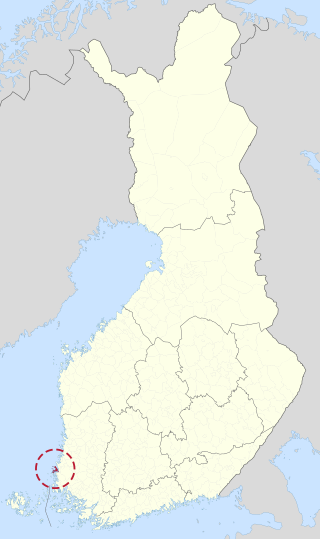
Pyhämaa is a village and a former municipality of Finland in the former Turku and Pori Province, now in the Finland Proper region. It was consolidated with the town of Uusikaupunki in 1974.
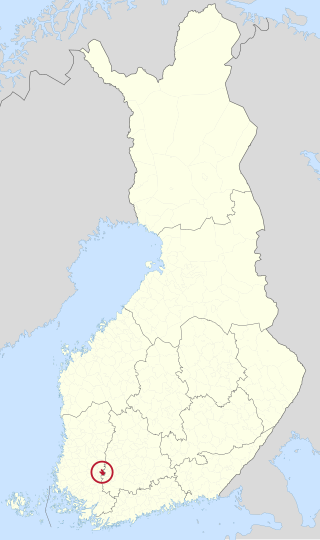
Metsämaa is a village and a former municipality of Finland in the former Turku and Pori Province, now in the region of Finland Proper.
